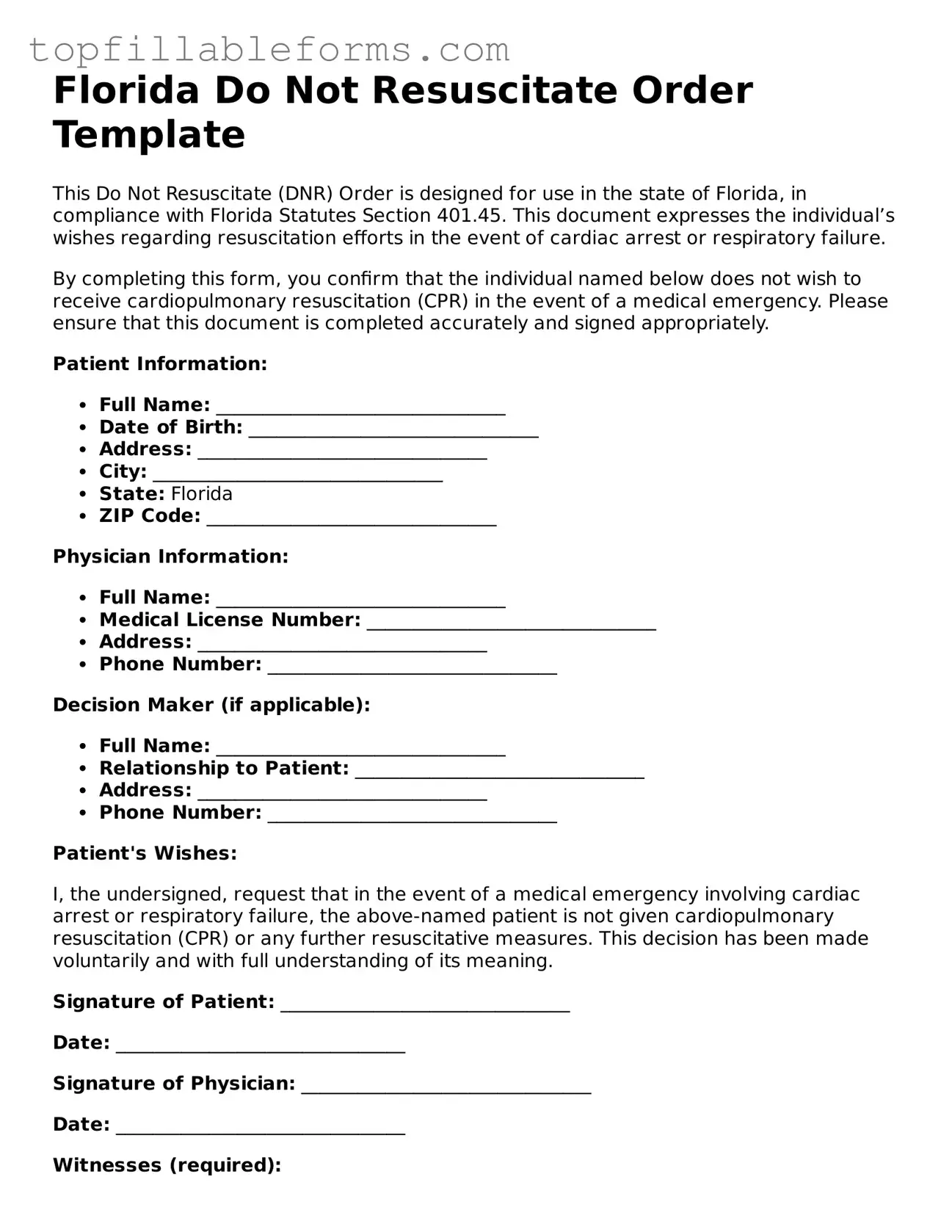Attorney-Verified Do Not Resuscitate Order Template for Florida
A Do Not Resuscitate Order (DNRO) in Florida is a legal document that allows individuals to express their wishes regarding resuscitation efforts in the event of a medical emergency. This form is particularly important for those who have specific healthcare preferences and want to ensure that their choices are respected. Understanding the DNRO process can help individuals and their families navigate these sensitive decisions with clarity and compassion.
Open Do Not Resuscitate Order Editor Here

Attorney-Verified Do Not Resuscitate Order Template for Florida
Open Do Not Resuscitate Order Editor Here
Finish the form now and be done
Finish your Do Not Resuscitate Order online by editing, saving, and downloading fast.
Open Do Not Resuscitate Order Editor Here
or
▼ PDF File
